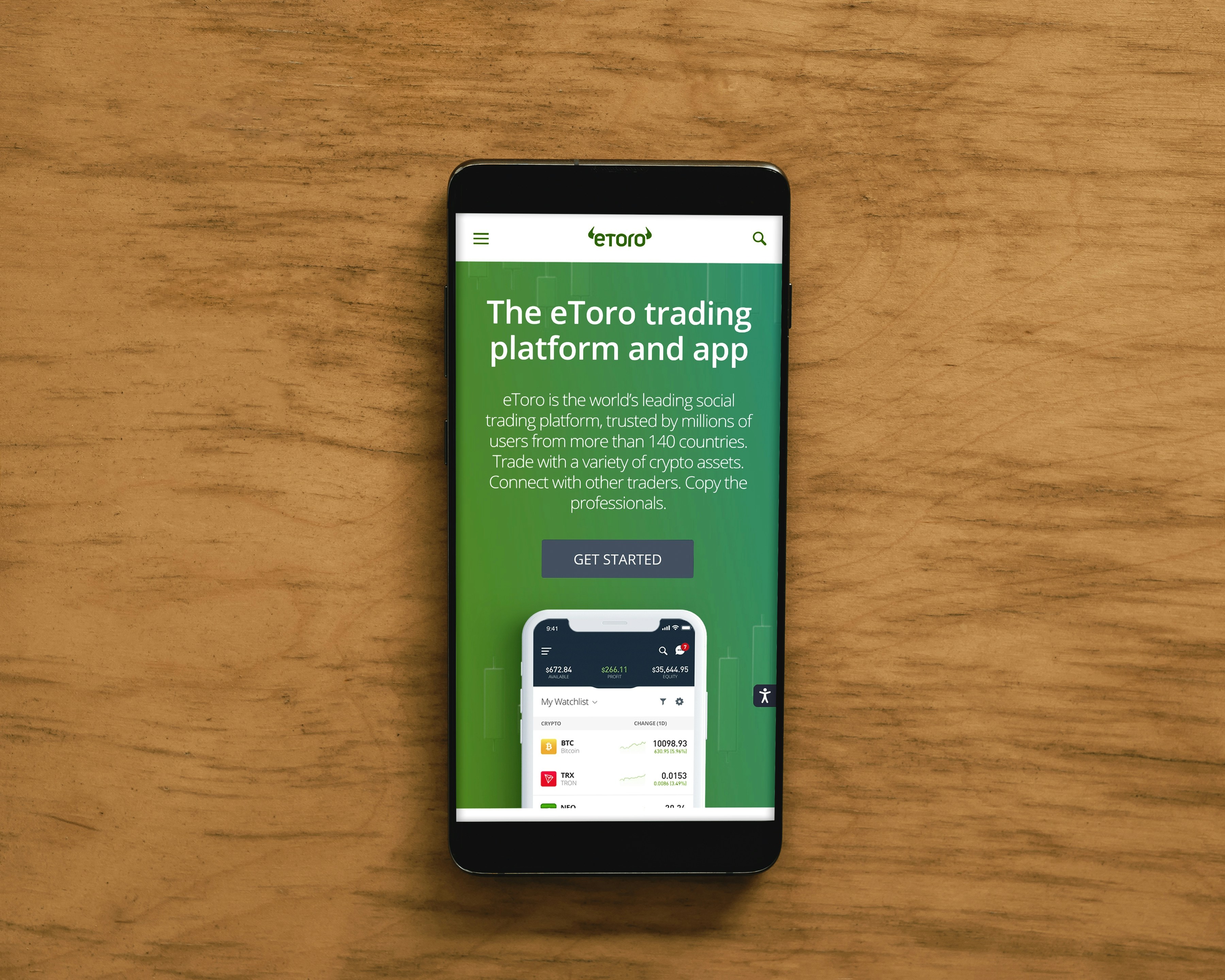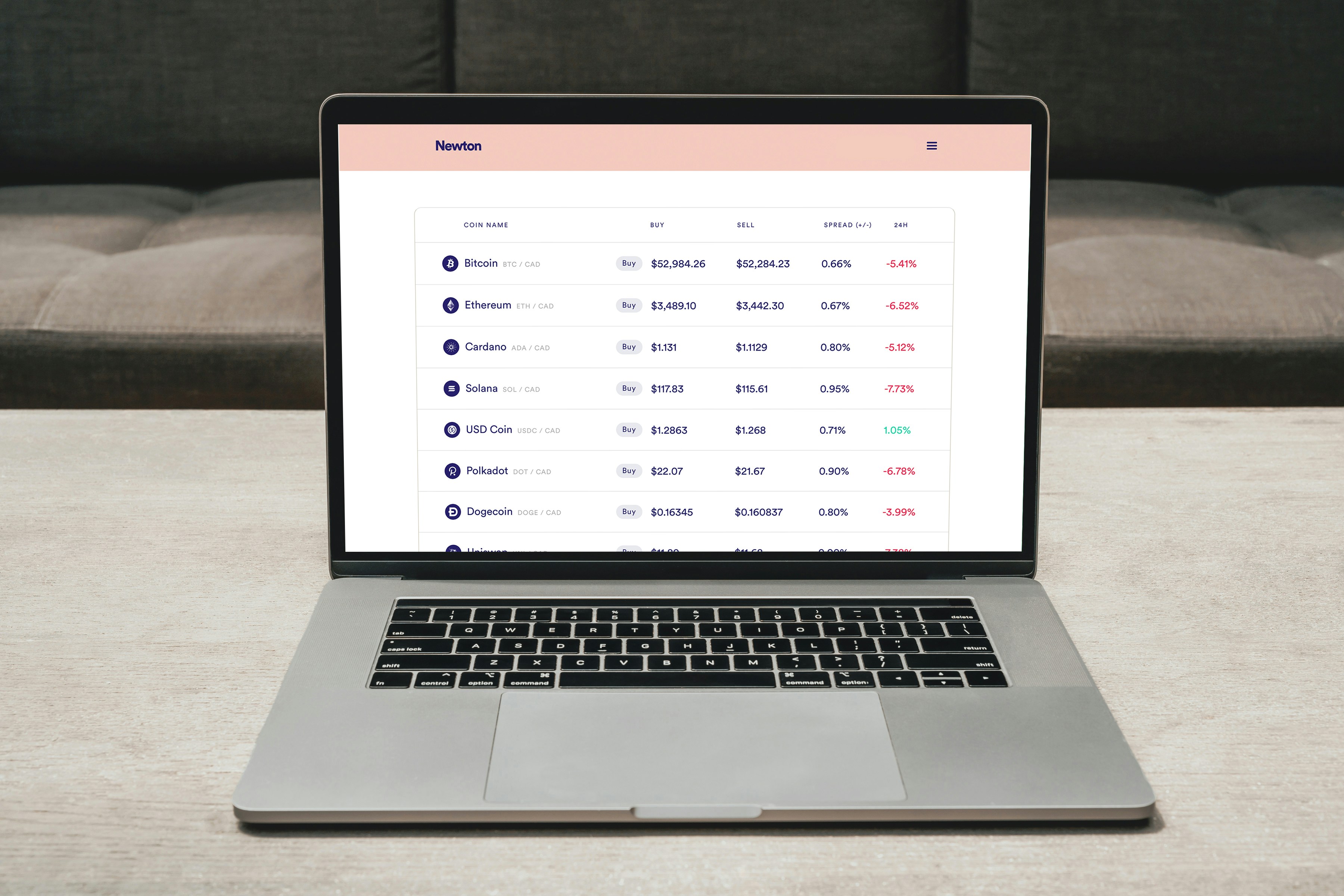
What is a CFD Broker?
A CFD broker, or Contract for Difference broker, serves as an intermediary between traders and the financial markets, enabling individuals to engage in CFD trading. In essence, these brokers allow traders to speculate on the price movements of a wide range of financial instruments, such as stocks, commodities, indices, and currencies, without requiring ownership of the underlying assets. This unique approach provides both flexibility and the opportunity to capitalize on market fluctuations.
The fundamental characteristic of a CFD is that traders can open positions reflecting their predictions on whether the asset price will rise or fall. When a trader enters a CFD trade, they only need to deposit a fraction of the total value of the position, known as margin. This not only allows for greater exposure to the market but also denotes a significant level of risk, as losses can exceed the initial investment. A CFD broker facilitates this process by offering a trading platform where investors can analyze market trends, make trades, and manage their accounts efficiently.
Additionally, CFD brokers typically provide leverage, enabling traders to increase their potential returns. Leveraged trading means that a small amount of capital can control a larger position in the market. However, while leverage can amplify profits, it can also magnify losses, underscoring the importance of effective risk management strategies.
Furthermore, CFD brokers often provide educational resources, market analysis, and customer support, which are invaluable for both novice and experienced traders. They play a crucial role in the trading ecosystem by ensuring that traders have access to necessary tools and information, ultimately aiming to facilitate informed trading decisions. As such, choosing a reliable CFD broker is imperative for any trader looking to navigate the complexities of the CFD market successfully.
How CFD Trading Works
Contract for Difference (CFD) trading presents a unique approach to engage in the financial markets without owning the underlying assets. When a trader opts to open a CFD position, they are essentially entering an agreement with a CFD broker to pay the difference in the asset’s price from the point of entry to the point of exit. This allows traders to speculate on price movements in various markets, including indices, commodities, and currencies, without requiring physical ownership.
The mechanics of opening and closing a trade in CFD trading are straightforward. When a trader believes the price of an asset will rise, they can open a ‘buy’ position. Conversely, if they anticipate a price drop, they would open a ‘sell’ position. Once the trade is executed, the position remains open until the trader chooses to close it. The profit or loss is determined by the difference between the opening and closing price, multiplied by the number of share contracts held. It is crucial for traders to monitor their positions, as markets can be volatile, leading to rapid changes in price.
Leverage plays a significant role in CFD trading, allowing traders to control larger positions than what their account balances would typically permit. For instance, a CFD broker may offer leverage of 1:10, meaning that for every $1 of margin, the trader can control $10 in the market. While leverage can amplify profits, it equally increases the risk of substantial losses. Understanding margin accounts is essential, as traders are required to maintain a certain amount of funds in their accounts to keep their positions open.
A real-world example illustrating this concept could involve a trader speculating on the price of oil. If they believe the price will increase from $70 to $75 per barrel, and they use a leverage of 1:10, a tiny investment could yield significant returns if they are correct. However, in the opposite scenario, market fluctuations may lead to losses surpassing their initial investment, highlighting the inherent risks of CFD trading.
Types of CFD Brokers
In the realm of Contract for Difference (CFD) trading, different types of brokers operate using distinct models. Understanding these models is essential for traders who aim to select a broker that best fits their trading style and preferences. The primary categories of CFD brokers can be broadly classified into market makers, ECN (Electronic Communication Network) brokers, and STP (Straight Through Processing) brokers.
Market makers are brokers that create a market for the CFDs they offer. They typically take the opposing side of a trader’s position, which allows them to set their own prices and spreads. The advantages of choosing a market maker include the ease of order execution and potentially tighter spreads. However, one drawback is that the interests of the trader and the broker may not always align, leading to a potential conflict of interest.
ECN brokers, on the other hand, operate differently by connecting traders directly to the interbank market or other liquidity providers. This model allows traders to access real-time pricing and typically experience lower spreads, especially during volatile market conditions. However, ECN brokers often charge a commission, which can make trading costs higher, especially for those making frequent trades. For many traders, however, the transparency and direct access provided by ECN brokers outweigh the additional commissions.
STP brokers facilitate direct order processing without intervention. In this model, orders are sent straight to liquidity providers, which allows for quicker execution and often more competitive spreads. The main advantages of STP brokers include reliability and speed. The downside may include less price transparency compared to ECN brokers as they may mark up the prices slightly before offering them to clients.
The choice between these types of CFD brokers largely depends on a trader’s individual strategy, desired trading experience, and the importance they place on factors such as execution speed, cost, and transparency.
Key Features to Look for in a CFD Broker
When selecting a CFD broker, it is essential to evaluate several key features that can significantly influence your trading experience. One of the most critical aspects is regulation and licensing. A reputable CFD broker should be regulated by a recognized financial authority, which ensures that they adhere to strict operational guidelines. This not only provides a safeguard for your funds but also enhances transparency and trustworthiness.
Another important feature to consider is the trading platform offered by the broker. A user-friendly and technologically advanced platform can greatly enhance your trading experience. Look for brokers that provide demo accounts, which allow you to familiarize yourself with their platform without risking real money. Moreover, consider the tools and resources available on the platform, such as technical analysis features, charting tools, and market data.
Fees and commissions are also vital when assessing a CFD broker. Different brokers have varying fee structures, including spreads and overnight holding costs. It is important to compare these fees as they can significantly affect your overall profitability, particularly if you are a frequent trader. Look for brokers that offer competitive pricing while maintaining good service quality.
In addition to these factors, responsive customer support plays a crucial role in your overall satisfaction with a CFD broker. Ensure that the broker provides multiple channels for support, such as live chat, email, and phone support, and is available during market hours. This accessibility can prove invaluable in resolving any issues that may arise during trading.
Lastly, examine the range of markets available for trading. A diverse selection can provide more opportunities for profit and allow you to implement various trading strategies. Ideally, your CFD broker should offer access to global markets across different asset classes, including forex, commodities, indices, and cryptocurrencies. By carefully assessing these features, you can make a more informed decision when choosing a CFD broker that aligns with your trading goals.
Regulations and Safety in CFD Trading
The landscape of contract for difference (CFD) trading is significantly shaped by regulations that oversee the activities of CFD brokers. Regulation serves as a critical pillar of safety for traders, providing a framework that protects investors’ interests and ensures market integrity. Various global regulatory bodies maintain oversight over CFD brokers, ensuring that they adhere to established standards and practices that promote transparency and fairness in trading.
Among the notable regulatory authorities is the Financial Conduct Authority (FCA) in the United Kingdom. The FCA imposes strict regulations, requiring brokers to meet rigorous financial standards, maintain client funds in segregated accounts, and ensure the delivery of accurate information regarding trading risks. This level of scrutiny instills confidence in traders, as they can be assured that they are engaging with a CFD broker that prioritizes their safety and complies with legal requirements.
Similarly, the Australian Securities and Investments Commission (ASIC) plays a crucial role in regulating CFD brokers in Australia. ASIC’s regulations focus on investor protection, requiring brokers to hold adequate capital reserves and implement measures to address conflicts of interest. Traders who choose to engage with regulated brokers, such as those overseen by the FCA or ASIC, enjoy a level of protection that unregulated brokers cannot guarantee. Without oversight, unregulated brokers may expose traders to higher risks, potentially leading to fraudulent activities or inadequate financial safeguards.
In conclusion, understanding the regulations governing CFD brokers is essential for traders looking to protect their investments. Engaging with a regulated broker not only enhances the safety of trading activities but also contributes to an overall positive trading experience. By choosing a well-regulated CFD broker, traders can navigate the complexities of the financial markets with greater assurance and peace of mind.
The Pros and Cons of Using a CFD Broker
Contract for Difference (CFD) trading has gained significant traction among traders due to its unique structure and trading capabilities. Engaging with a CFD broker can offer several advantages. One prominent benefit is the accessibility it presents to both novice and experienced traders. With many brokers providing user-friendly platforms, individuals can easily engage in trading without extensive prior knowledge. Furthermore, CFDs allow traders to speculate on price movements in various financial markets, including stocks, commodities, and foreign exchange. This aspect empowers traders to profit whether the market is rising or falling, providing a versatile trading strategy.
Another compelling advantage of using a CFD broker is the leveraged trading feature. This means that traders can control larger positions with a smaller capital outlay, potentially amplifying their profits. For instance, a trader with a limited investment can take a more significant position on the asset price change, which might not be possible through traditional asset trading. This characteristic of CFDs makes them appealing to those seeking to maximize their investment efficiency.
However, trading with a CFD broker is not without its challenges. The same leverage that can magnify profits can also lead to substantial losses. If the market moves against a trader’s position, they could be faced with greater losses relative to their initial investment. Additionally, the volatility associated with CFDs can be particularly challenging. Sudden market shifts can lead to rapid fluctuations in asset prices, resulting in unpredictable outcomes. Moreover, traders should also consider that many brokers charge commissions or spreads, which can impact their overall profitability.
In evaluating whether to engage a CFD broker, it is essential to weigh these pros and cons carefully and understand individual risk tolerance and trading objectives.
Common Mistakes to Avoid When Trading CFDs
Contract for Difference (CFD) trading offers the potential for significant profits, but it is also laden with risks that can lead to substantial losses if not managed properly. One of the most prevalent mistakes traders make is overleveraging. CFDs allow traders to control large positions with relatively small capital outlays, leading some to borrow excessively to maximize gains. While the allure of high returns can be tempting, overleveraging can quickly amplify losses, resulting in margin calls and potentially the total loss of initial investments. To mitigate this risk, it is crucial to use leverage judiciously and understand the implications of margin trading.
Another common pitfall is emotional trading. Traders often allow their emotions, such as fear and greed, to dictate their trading decisions rather than relying on a clear strategy. This can lead to impulsive trades based on market fluctuations rather than informed analysis. Establishing a disciplined trading plan and adhering to it can help prevent emotional reactions, fostering a more rational trading environment.
Neglecting risk management strategies is equally detrimental. Many traders underestimate the importance of setting stop-loss orders, which can protect against significant losses by automatically closing a trade at a predetermined level. Implementing risk management techniques, such as position sizing and diversification, can significantly reduce the likelihood of catastrophic losses.
Lastly, failing to conduct thorough market analysis is a critical error. Successful CFD traders rely on both technical and fundamental analyses to inform their trading decisions. Ignoring economic indicators, market news, and trends can lead to uninformed decisions and missed opportunities. By dedicating time to research and analysis, traders can enhance their understanding of market conditions, allowing for more strategic trading approaches.
In conclusion, avoiding these common mistakes—overleveraging, emotional trading, neglecting risk management, and insufficient analysis—can improve a trader’s chances of success in the CFD market. Understanding and addressing these pitfalls is essential for building a sustainable trading strategy.
Strategies for Successful CFD Trading
Contract for Difference (CFD) trading offers potential benefits, but success requires effective strategies. One of the primary methods traders employ is technical analysis. This approach involves analyzing price charts and patterns to predict future market movements. By utilizing various technical indicators such as moving averages and relative strength index (RSI), a trader can better identify entry and exit points, thus increasing their chances of profitability when engaging with a CFD broker.
Another vital strategy is fundamental analysis, which focuses on evaluating economic indicators, financial statements, and news events that can influence market prices. Understanding the macroeconomic factors at play helps traders make informed decisions about which assets to trade. For instance, keeping an eye on interest rates, unemployment figures, and geopolitical developments can equip traders with insights into market trends crucial for successful CFD trading.
A robust risk management strategy is essential to mitigate potential losses in the volatile CFDs market. Traders should consider setting stop-loss and take-profit orders to automatically close positions when specific price levels are reached. This not only protects capital but also enforces discipline in executing trades as per a predefined strategy. Establishing a risk-reward ratio is beneficial as well, ensuring that potential profits outweigh losses.
Lastly, developing a comprehensive trading plan is crucial for long-term success in the CFD trading landscape. A well-structured plan should outline individual trading goals, risk tolerance, and preferred strategies, and it should also include criteria for selecting a CFD broker. By adhering to a well-defined strategy and maintaining consistency, traders can enhance their performance and navigate the complexities of the market with greater confidence.
Conclusion: Choosing the Right CFD Broker for You
As we conclude our exploration of CFD brokers, it is imperative to summarize the key factors to consider when selecting an appropriate broker for your trading needs. The diverse nature of contract for difference (CFD) trading underscores the necessity of making an informed choice that aligns with your individual trading preferences and strategies. A reputable CFD broker is characterized by its regulatory compliance, comprehensive range of financial instruments, competitive pricing structures, and robust trading platforms.
When evaluating a CFD broker, start by reviewing their regulatory status. A broker regulated by reputable financial authorities can provide a layer of security and assurance that your funds are protected. Additionally, pay attention to the variety of trading instruments offered. Whether you are interested in equities, commodities, or forex, your chosen broker should facilitate access to a wide array of markets, enhancing your trading opportunities.
Moreover, trading costs, including spreads, commissions, and overnight fees, should be meticulously examined. These factors can significantly impact your overall profitability. Therefore, strive to select a CFD broker that offers competitive pricing without hidden fees that may surprise you later. Furthermore, the quality of the trading platform and tools provided can influence your trading experience. Functional and user-friendly platforms with advanced charting tools can facilitate better decision-making.
Finally, consider the customer support services a broker provides. Efficient support can be crucial during crucial trading moments. In light of these considerations, it is vital for prospective traders to conduct thorough research and weigh their options carefully. By aligning your trading goals with the appropriate CFD broker, you can enhance your trading potential and achieve a more rewarding trading experience.


